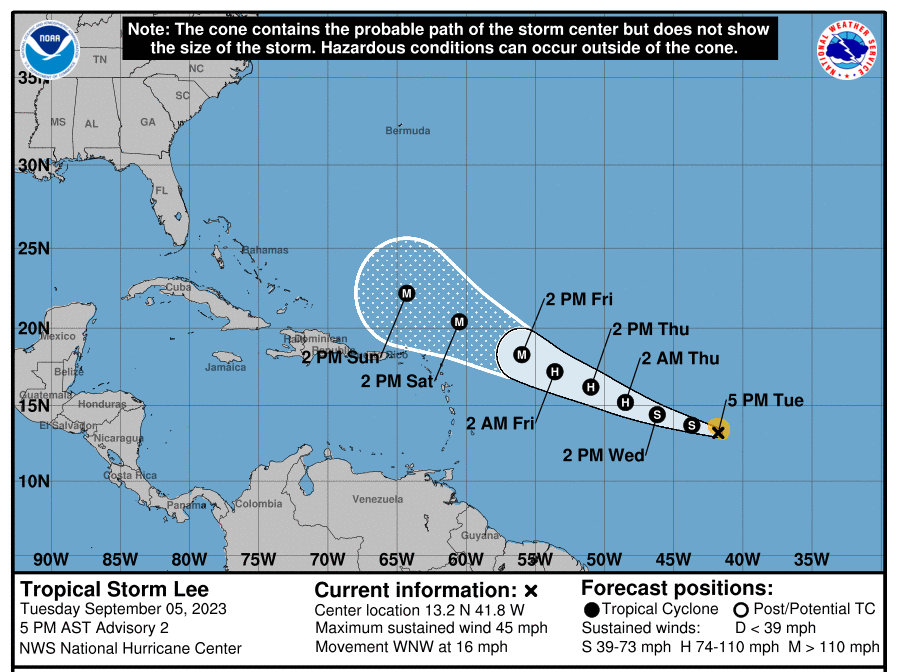Section Branding
Header Content
Tropical Storm Lee will soon be a major hurricane — with 145 mph winds or more
Primary Content
Tropical Storm Lee has formed in the Atlantic Ocean and forecasters say it's expected to strengthen rapidly into a major hurricane by this weekend.
In its last advisory, the National Hurricane Center said Lee has winds of 45 mph and is moving toward the Leeward Islands. Forecasters are already using stark language about the storm and its prospects.
"It is becoming a question of when and not if rapid intensification occurs with Lee," the advisory noted. Winds are forecast to reach 145 mph which is a powerful Category 4 "major hurricane."
This already is a 5 mph increase from the NHC's initial advisory earlier in the day. The reason for the higher wind speed is the above-average water temperatures in the area of the Atlantic where the storm is set to be. "The system should be moving over record-warm waters ... east of the Lesser Antilles." Forecasters say those kinds of water temperatures are what they typically see in the Gulf of Mexico — not in the much cooler ocean.
This forecast - so far out in the Atlantic — with a prediction of strengthening this quickly is unusual. Still, it's too early to say with any certainty exactly where this storm will go.
Most of the long-range models have Lee eventually curving north - missing the Caribbean and remaining offshore of the United States. While models are generally accurate, they're not perfect. Hurricane Irma, in 2017, was supposed to follow a similar path - but instead walloped the Gulf coast of Florida.
Lee is the the 13th named storm of what is an above-average Atlantic hurricane season. As researcher Phil Klotzbach notes, only "4 other years on record have had 13+ Atlantic named storms by Sept. 5: 2005, 2011, 2012, 2020."
Copyright 2023 NPR. To see more, visit https://www.npr.org.

